#identify who's working on the local projects you care about
Explore tagged Tumblr posts
Text
Yes, state-level environmental orgs, but also, hear me out: local government. It's where your best leverage is, both because you're directly impacted by its decisions and have skin in the game, and because so few people show up where decisions are made.
I think the part of Robin Wall Kimmerer's Braiding Sweetgrass that often gets ignored is the part where she extols the virtue of going to the damn meeting. Learn what departments are in charge of planting municipal shrubs and trees, and when their public meetings are. And then go! (Maybe Parks and Rec, maybe Public Works, maybe something else.) Go advocate for native plants that feed native pollinators. Or for other climate-resiliency measures-- wetlands near the coast, or respecting the flood plain.
If your city or town, like mine, has historically concentrated tree planting and parkland in whiter neighborhoods, and simultaneously concentrated heavy industry in historically Black neighborhoods, learn about and support the existing efforts of your neighbors to redress that inequity. (My city has a working port, and the neighborhood adjacent to the port has much higher rates of asthma than neighborhoods up in the hills, because of idling diesel trucks. Neighbors who took particulate readings every week for years helped get legislation passed that is starting to fix the problem.)
If your city, like mine, has police aircraft that surveil neighborhoods from overhead all the damn time, find out the cost of staff time, fuel, and maintenance per hour in the air, and the emissions impact, and be an absolute mosquito about repeating it at every meeting where something vaguely related is on the agenda.
And hey: if you've got research skills and an inherent nosy streak? Consider helping investigate where political contributions come from, to see which of your elected officials at the local level are taking money from people who want a coal terminal, or who want to release Chevron from their responsibility for shitty air quality. (Sometimes local newspapers will do this, but hey, Richmond California's local news was literally bought by Chevron, and investigative reporters can only do so much if their publishers and editors will kill stories critical of their funders.) Learn about power mapping and how to do it!
These examples are all ones that stem from my daily experience living where I live. Yours might be different. This is just to say: environmental action can and should include your city, your neighborhood, your block, and the organizations and people you're already invested in.
Hey
Hey Americans.
The federal government is about to get useless for at least a bit. This is a GREAT time to get involved in state level environmental orgs. That's where you're gonna be able to do the most for the next few years. Even a bit of casual volunteering can make a big difference.
I've done this off and on for years and when we go local we WIN. And friends winning feels good. This is how a lot of progressive agendas have won in this country. The whole US isn't out of this. People ARE still fighting climate change all around you.
You could be one of those people, in community with other people who are doing something.
doom and gloom "oooh everything is pointless oooh I'm so deep and edgy because I love trying to be the death of hope" people will just get blocked. I'm not talking to your crab-bucket ass.
#local government#identify your leverage#identify who's working on the local projects you care about#figure out how to make your skills useful to them
13K notes
·
View notes
Text
If you've heard of black crested macaques or the Yaki monkey, it is probably this one:

This black crested macaque became famous in 2011 when the photographer David Slater was taking photos in the jungle of Sulawesi Indonesia where black crested macaques are indigenous fauna. Slater was not the photographer who captured this photo, however. It was the macaque who has since been commonly called Naruto who took its own photograph on Slater's camera. The famous monkey selfie sparked a copyright lawsuit brought by PETA onto Slater, which was settled in 2017 with an agreement that Slater would donate a percentage of any profits gained by the pictures Naruto took to organizations that protect this species in the wild.
For the millions who enjoyed Naruto's selfies online, the story ends there. For Naruto and the Yaki the story continues. The black crested macaque is critically endangered. Slater's website says he donates 10% of the proceeds of all "monkey selfie" merchandise to "a monkey conservation project in Sulawesi", and while he does not specify which conservation project he supports, there is one I know of that does incredible work.
Selamatkan Yaki is an operation with a huge impact. The Yaki is one of the most endangered primates in the world, and it can be difficult to gauge just how many of them are out there. This is where biodiversity monitoring comes in to produce the data needed for effective conservation protocol. A pilot study was conducted in Tangkoko Nature Reserve, which has created the blueprint for surveying the entire province using camera traps and remote sensing to observe the Yaki and their threats over time.

Using the data gathered from monitoring, Selamatkan Yaki collaborated with the government agency for natural resource conservation to create a Species Action Plan (SAP). This species action plan is not only an evidence based conservation plan designed to save the Yaki, but all the other species that share its forest home. Establishing the Yaki as a flagship species is crucial as this charismatic monkey is just one of many species that is not found anywhere else in the world.
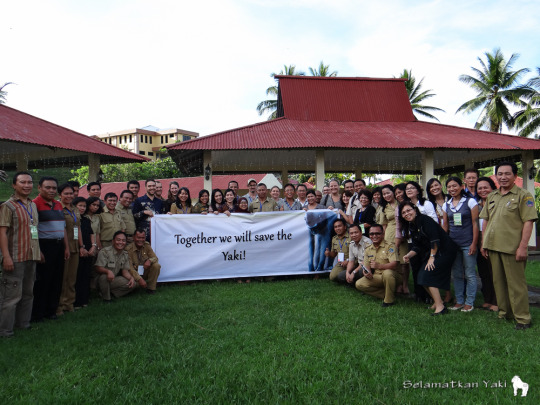
One of the major threats Yaki face, like many other primate species, is hunting for wildlife trafficking and the bush meat trades. While hunting the Yaki is illegal, it takes a true culture shift to keep endangered animals out of traps and cages. Selamatkan Yaki has developed both community conservation and environmental education programs designed to unite local communities in protecting the species. The community conservation program involves surveys conducted since 2007 so that long term data on human-animal relationships can be tracked to best identify community conservation methods. This data is used in the environmental education program which introduces information on biodiversity and conservation to school curriculum and provides research opportunities and scholarships for post secondary students to contribute to conservation.
Selamatkan Yaki understands that it isn't enough to have a team of people dedicated to saving the black crested macaque-- the more people who care and help the better. Everyone has a role to play in conservation, but right now so many people outside Indonesia have only ever seen the black crested macaque once, in a photo online. That's why I'm partnering with Selamatkan Yaki to spread information about the work they do and the species they protect. To learn more about Selamatkan Yaki you can click the links in this post, and stay tuned for more on the black crested macaque.
#selamatkan yaki#black crested macaque#macaques#monkeys#wildlife#conservation#news#animal welfare#animals#endangered species#ecology#macaca nigra#yaki
253 notes
·
View notes
Note
Hi there... I really love the idea of solarpunk but like. The "punk" part of it makes me so anxious. I think it's a vital part of the movement, but I can never imagine doing something like that myself.
If you have any small (tiny) tips or ideas on things I can do on a more personal level I would appreciate them. Everything seems so overwhelming and completely out of my wheelhouse and skill base
Hey ya 🌱 Sprout!! It can be hard to recognize, particularly in solarpunk, but your already punk and already doing praxis. I'm sure of it.
If you've ever pirated media, DIYed or mended clothes, have a rain barrel, spoke out against poor labor conditions, provided a safe space for anyone in an uncaring world even for a brief interaction- Your already punk!! Anyone who fights and gatekeeps that title from you bc of age, aesthics, or experience is a poser and a FED!!
That being said tho--
If you want to do more outrageous projects there's a few things I can recommend depending on how much you wanna do!!
Battlejacket- TBH the purpose of a battle jacket is to soothe this exact anxiety while also being a fun project and being a single to others!! There's many examples in both my Battlejacket tag and patch idea tag to get you started. You can get iron on patches/print paper that transfers pretty well if your not used to DIYing stuff. If this feels like to big if a step and is too much tho keep in mind you can make a battlejacket and not wear it outside right away. It's a second skin to make you feel and others feel safe, but it's also a big neon target on yourself depending on your environment and where you are. So it's ok to just make one and not wear it out until your ready!! (If you do this-- my only demand is you show me when you do it!! I want to see all of those kinda projects bc I'm obsessed with them)
Getting out there- If starting a guerilla gardening project or joining a community garden, or community association isn't an option for you- be that bc of accessibility/time/energy- I'd recommend starting to archive and getting out there! Inaturalist or falling fruit are awesome programs where you identify plants/animals/stuff outside in general. It gets you outside, your adding to a community which gets the feeling of a ball rolling building confidence and your praxis muscles!!
Root yourself in your community- This is a hard one if your busy/have low spoons/are introverted but I promise its worth doing even if you arent super active in those spaces! Even just researching the history of your town/city/neighborhood and seeing what programs are running can really connect you to the area. A lot of us due to the renting crisis never truly attach to our neighborhoods or are too busy to look into local artists. (Not your fault babes, its built to do that to feed monopolies) Pick even just 1 thing you care about (local artists, teashop, bands, libraries, community fridges, etc..) and find the closest thing to you and get obsessed. Being a regular in any space is an awesome feeling, its where you'll find friends, and you'll directly see any change you provide there.
Media archiving- There's a lot of ways of doing this one but just pirate the fuck out of everything!!!! Burn it to a physical copy, share it with your friends/family! Make mix dvds, burn movies/tv shows! Directly download youtube videos! Print off your fave fanfiction and bind them into books! Particularly with streaming services directly deleting content and getting rid of them entirely this is important work but its also just very fun!! Seeing my wall filled with dvds and books and objects makes my brain happy but also again, the physical exchange of handing the media you love to another person is so unique! Theres lots of guides and methods of doing this depending on the method and medium your using.
Utilizing public spaces- Loitering is a good one as well to push yourself and to interact with things IRL! Use your public libraries and parks excessively! Spend a weird amount of time at the mall not buying stuff! This might seem like a weird one, but its a long term thing. It shows that ppl are supposed to be out and about without spending money, but also many of these places (except the mall obvi) get funding based on usage so the more you use something the more likely they are to make it accessible to more ppl! It also makes it more normal for ppl who need to loiter to be in these spaces which again adds more accessibility. This is also one that might get you unwanted attention so decide your comfort and safety level. Pushing boundaries is good but do it at your own pace.
Vandalize! - Again we're ramping up a bit on risk levels but I recommend it, particularly bus stops or putting up posters. Bus stops is bc at least in my city they only maintenance them once they've been 'ruined' so its actually a cosmic positive to do it in these spaces. Posters are also good! Ive seen quite a few for tenant unions but also a handful of them that are food resources or call outs for police. This is mostly to have passive way to show solidarity or get a message across. But also like your doing art! Great stuff! Again tho this comes with risk if caught or if you dont know what your doing so start with baby steps (like using sharpie on an Ad you fucking hate or putting up a poster in a neutral space to get used to it)
Hopefully these tips get you started!
355 notes
·
View notes
Text

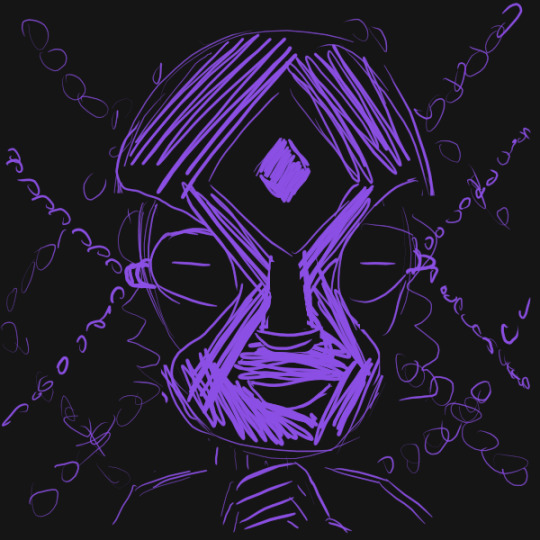




Over two years ago, I was inspired by @transhitman's personal Disco Elysium Skill project to make my own Disco Elysium Skills. Today, I am proud to present my own take on the idea, the Internal Family Skills, having finally gotten my brain in gear enough to finish it in a showable capacity. This isn't the final form of the project, but I'd need to learn CSS to make a full fake menu on my Neocities, and a new tablet to make the Skills as painterly as the game's art style (which I might not do, since this style is basically what the inside of my brain looks like).
We're starting off with the Manager (MGR) Attribute: Your capacity to present sufficient normalcy and interact with the people around you. Its six Skills are:
Bureaucracy
Disguise
Distress Tolerance
Hiya
Pakikiramdam
White-Passing
[ Firefighter | Exile | Self ]
Bureaucracy
Understand process and procedure. Pull on the levers available to the public.
COOL FOR: Pencil-Pushers, Concerned Citizens, The Maliciously Compliant
Bureaucracy is what humans use for detailed communication in place of emotional honesty. This is not, in fact, an imposition -- rather, it allows for smooth cooperation and organization at large scale without the superior's scorn or the inferior's resentment getting in the way. Your Bureaucracy skill familiarizes you with paperwork and precedent, assures that the powerful view you as properly compliant, extracts assistance from systems that don't care about you as a person, and teaches you how to work to rule.
At high levels, Bureaucracy lets you navigate hierarchies, provide and access information easily, and fill in gaps in existing procedure where there is none. It'll also make you a fussy, obstinate smartass who refuses to participate with anyone emotionally or act without structure. At low levels, however, you'll be adrift in a paper sea designed to silence, exhaust, and oppress you.
Disguise
Manipulate with masks. Fit yourself into palatable forms.
COOL FOR: Changeling Children, Sociopathic Butterflies, Emotional Laborers
Disguise wants you to know that if you can't be yourself, it's always okay to be someone else. As your handy-dandy superficial charm, Disguise feeds you the lines necessary for a given situation: Need to act mindful and demure at work when you're imagining gutting your manager like a fish? Disguise is already on it. Want to seem like a problem-solving super-genius when you're actually in the middle of cybersex? Disguise is running the social buffer. Trying to avoid telling the truth to your parents or scaring the hoes at the local queer scene? Got. You. Covered.
At high levels, Disguise makes you terrified of failing to live up to your image, to the extent that you'll partition off your life into different personas. You won't be tempted to become any of the masks, but by God will you not take any of them off. At low levels, though, you'll have to take all the lumps that come with never telling anybody what they want to hear.
Distress Tolerance
Endure immediate pain for long-term gain. Stay in the trap to remove the one who set it.
COOL FOR: Forward-thinkers, Sensitive Souls, Cluster Bs
Distress Tolerance is your lexicon of adaptive coping mechanisms. It snaps into action when the world is painful and unfair, identifying pain relief and things you can control. Distress Tolerance reminds you to go for a walk instead of lying in bed, to spend time with people you love instead of fighting online, and to box breathe instead of hiding in a cabinet and sobbing. It also helps you keep your goals in mind: the point of enduring the pain is to avoid hurting people and to have a better life in the future.
At high levels, Distress Tolerance makes you hyper-sane, and thus hypernormal. You'll fall victim to the seductions of personal responsibility, assuming that it's simply your duty to put up with the world's iniquities. Without it, though, you'll be a panicking woman-child ignorant of her own agency, unable to do anything about those iniquities but lash out at the people who love you.
Hiya
Feel shame yourself. Anticipate shame in others.
COOL FOR: Overton Glaziers, Panopticon Inhabitants, Human Dignity Enjoyers
Hiya isn't the cop inside your head, it's the patriarch -- instead of trying to shoot you when you've deviated from the accepted standards of behavior for a given community, it just makes you feel fundamentally unlikable and helpless. This isn't entirely a bad thing, since the accepted standards of behavior frequently involve putting others first so you don't make them feel fundamentally unlikable and helpless. That said, while Hiya teaches you that standards of behavior can change, the only tool it gives you to accomplish that is the cattle prod called "shame".
At high levels, Hiya makes you socially invulnerable -- because you don't do anything objectionable in the first place. Not only will you be self-sacrificingly afraid of being deemed deviant, you'll cringe and withdraw when others embarrass themselves regardless -- and you'll enforce shame yourself to make the cringing stop. Without it, though, you'll literally be walang hiya: a shameless, self-gratifying boob incapable of thinking about others' feelings.
Pakikiramdam
Understand that others’ needs are different. Find out what they are.
COOL FOR: Relationship-Builders, Active Listeners, Safety Tool Users
Pakikiramdam feels out everything that isn't explicitly said. It's a Skill of social moderation formed through trial and error -- knowing what will tickle someone's funny bone, whether acquiescence is hiding upset, and whether they see a given action as common courtesy or a true effort. Pakikiramdam creates models of others' internal states to better foster and maintain kapwa; to this end, it reminds you to check in, slow down, and look at the conversation from outside so you're on the same page about what's going on.
At high levels, Pakikiramdam will make you truly empathetic and understanding -- as long as people can stomach you being a busybody who demands adult communication and introspection about their wants at the drop of a hat. Too low, however, and you'll simply barge through situations assuming you already know what everyone wants, giving you no chance to build empathy in the first place.
White-Passing
Defend yourself and get away with it. Recognize and use what authority you have.
COOL FOR: Egotists, Dissatisfied Customers, Fifth Columnists
You are the phenotypical expression of a multigenerational effort to make you and your desires untouchable in any social situation. White-Passing measures your ability to live up to that standard: Can you talk over people in a meeting to make your point heard? Can you talk to a cop like he's a brave and dignified defender of your security? Can you justify the entire extractive supply chain in order to demand a better customer service experience?
At high levels, White-Passing will get you what you want, and getting what you want will reinforce the rightness of your power. Not only will this make you an entitled little martinet claiming power you lack, it'll chain you to the structures that have given you what power you have. But without it, you won't even be able to get past the cop in your own head, let alone the ones outside it, and you'll make a cult of your own disenfranchisement.
Notes:
Bureaucracy's ear-thingies are a reference to Intergalactic Advocate Bob from Jupiter Ascending.
The mask Disguise is wearing is based on Caves of Qud's gentling mask.
Thanks is due to Jeremiah Reyes' 2015 article "Loób and Kapwa: An Introduction to a Filipino Virtue Ethics", which was instrumental in me figuring out how exactly my lolo's ethics filtered through my dad to me, for good and for ill.
15 notes
·
View notes
Text
Helloww!
💋 𝙷𝚎𝚢 𝙱𝚎𝚊𝚞𝚝𝚒𝚏𝚞𝚕 𝚂𝚘𝚞𝚕𝚜! 💋
✨ Welcome to my brand-new blog! My name is Classy, and I’m on an exciting self-growth journey, ready to become the best version of myself! ❤️
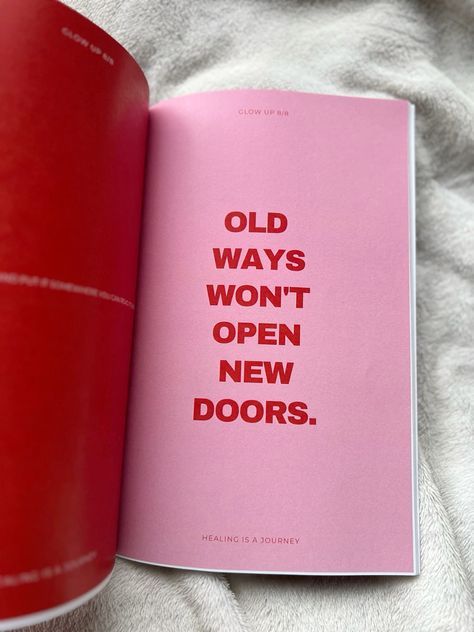

I believe that sharing my experiences and holding myself accountable is the key to flourishing, so I’m here to inspire, uplift, and empower you along the way! If you’re down for some realness and growth, let’s be besties on this beautiful adventure! 🌟✨
✨ Goals for Self-Improvement ✨
❤️ MENTAL HEALTH:
Goal: Reduce reliance on pornography (including smut books, comics, videos, even porno music) ⛔
Action Step: Identify triggers and create a plan to avoid them.
Use apps like StayFocusd or Cold Turkey to block access.
Daily Affirmations ✨: Start each day with positive affirmations to boost self-esteem and redirect your focus.
💪 PHYSICAL HEALTH:
Workout Routine:
Goal: Exercise 5 times a week.
Action Step: Choose specific workouts 🏋️♀️.
Tip: Mix it up with fun classes like Zumba or yoga to keep it exciting!
Skincare Routine:
Goal: Follow a morning and night routine.
Morning: Cleanser + moisturizer + sunscreen ☀️.
Night: Cleanser + moisturizer + acne treatments + 5-minute self-massage for relaxation. 🧖♀️
🙏 Daily Prayer & Bible Reading:
Goal: 10-15 minutes of prayer in the morning and reading the Bible before bed.
Action Step: Use Bible apps and set an alarm/reminder.
Reflection Journal: After reading, jot down thoughts or verses that stood out to you.
📚 PERSONAL DEVELOPMENT:
Reading Books:
Goal: Read at least 2 books per month—1 for me and another for our future book club. 📖
Action Step: Keep a list of books I want to read and start a book club!
Monthly Theme: Each month, focus on a theme such as “self-care”, “growth mindset”, or “creativity”.
🌼 Daily Routine 🌼
Morning Routine 🎀
4:30 AM - Wake up
4:35 AM - Make bed
4:40 AM - Pray
5:00 AM - Workout
5:50 AM - Shower/skincare
6:30 AM - Read a few chapters of the current book
7:00 AM - Simple + healthy breakfast 🍳
DAYTIME (Post-graduation vibes 🌟):
Focus on school, work, or personal projects.
Explore a hobby or learn a new skill! 🎨
6:00 PM - Dinner + family time 🍽️
7:00 PM - YouTube + tea (me time) ☕
8:00 PM - Read or journal (here on Tumblr!)
9:00 PM - Bedtime 🌙
🌹 Tracking Addiction 🌹
Identify Triggers: List specific situations or feelings that lead to urges.
Accountability Partner: Share this goal with a trusted friend who can check in weekly 📞.
Alternative Activities: When urges arise, have a list of alternatives ready (like walking or reading the Bible).
Reflect Weekly: Journal about successes and setbacks related to these goals each week.
💪 Physical & Mental Wellness ❤️
Weekly Workout Plan:
Mon-Fri: Shoulder stretch (10 min) + arm fat workout (10 min) + Daisy Keech ab workout (10 min).
Sat-Sun: Light stretches 🧘♀️.
Weekly Skincare Plan:
Sun & Wed: Weekly mask + exfoliation.
Balanced Eating:
Aim for 3 meals a day plus healthy snacks. 🍎
Meal prep on weekends to save time!
Hydration Challenge: Aim to drink at least 8 glasses of water per day!
🌟 Community & Accountability ❤️
Find a Group: Join a local church group, Tumblr communities, or a study group for shared growth.
Weekly Check-ins: Schedule meet-ups with a friend for mutual encouragement on goals.
Social Media Detox: Plan regular breaks from social media to refocus your mind. 📵
Weekly Review Questions:
What went well?
What were the challenges?
How can I adjust my goals for the next week?
Gratitude List: Each week, write down three things you are grateful for! 🎀
✨ Final Thoughts ✨
✨ Remember, change is a gradual process. Celebrate the small victories, and be patient with yourself as you embark on this journey. Consistency and discipline are key, so keep the faith in yourself and your path. You’ve got this, Classy! ❤️✨
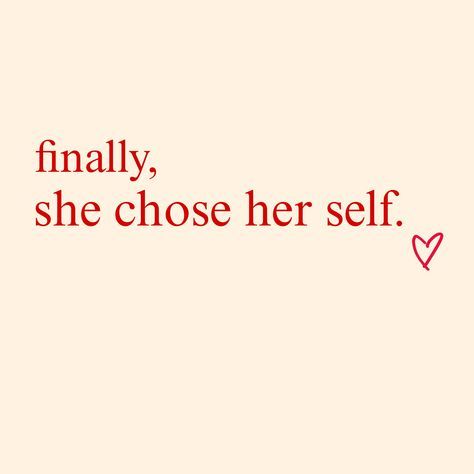
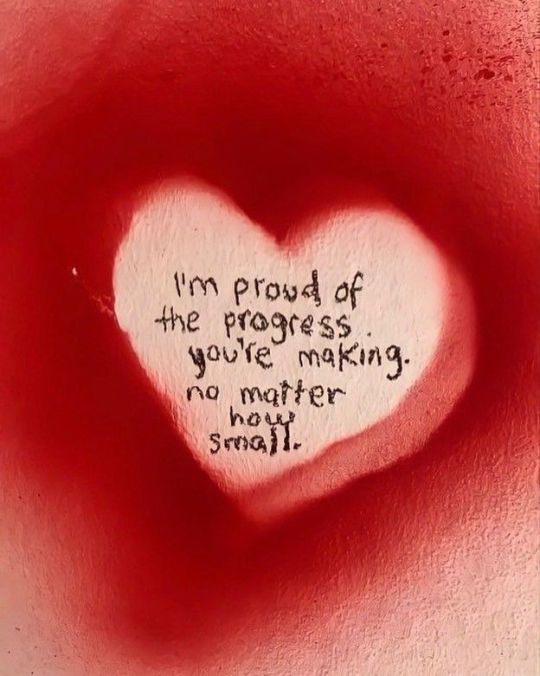
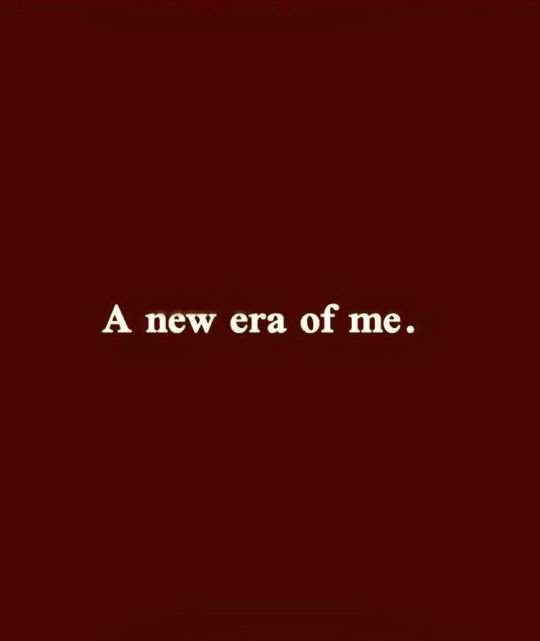
#SelfImprovement#PersonalGrowth#MentalHealth#Motivation#Wellness#SelfCare#PositiveVibes#Mindfulness#HealthyLifestyle#FitnessJourney#DailyRoutine#Affirmations#BookRecommendations#Journaling#SpiritualGrowth#GoalSetting#WomenEmpowerment#Inspiration#Gratitude#SelfLove#HealthyHabits#SkincareRoutine#BibleStudy#Accountability#PersonalDevelopment#AnxietyRelief#UpliftingContent#ExploreYourself#girlblogging#self creation
12 notes
·
View notes
Note
Hello! I hope that you are well.
I've got a few questions: 1. Do you plan to own any of the clothes and props?
2. What are your thoughts and theories on the trailer for the 3rd season? Are you excited?
3. Is there a good yellow ribbon/ string that can be used for a Yellowjackets soccer outfit? On that note, have you been able to identify which brand the girls use while playing?
4.Do you think there are ways to diy the clothes that are custom made for the show?
I hope that it's okay to send you message.
Until next time, take care, and thank you for creating this blog!
Of course it’s okay to message me! I’m glad you enjoy my blog! As per your questions:
1. I already have a nice sized collection (around 40 items total) of clothes and props as seen on Yellowjackets and I do plan on getting more. Someday it might even be cool to have some of the actual pieces used in the show as well but I’d have to wait for the show to end and that’s hopefully not for a while!
2. I’m very excited for the new season! I started watching the show as season 2 was airing so I’ve definitely been waiting a while for some new stuff! I loved the trailer and I was happy to see some of the old costume pieces from the first two seasons return, especially the Wilderness Acolytes!

As for theories I don’t have many but I do think we’ll see the Antler Queen costume as well as possibly the origin of the outfit.
3. The uniforms seen on the show are custom made by the costume department so you’d either need to recreate the uniform yourself or buy a recreated version of it. In interviews costume designer Marie Schley has talked about the fact that uniforms have changed a lot stylistically from the 90s so to truely capture the essence they had to have them custom made.


In the photo on the left you can see an early version of the Yellowjackets Jersey and some of their inspiration versus what uniforms they ultimately landed on to the right.
For the ribbon/string I’m not really sure what to recommend. Whenever I sew or craft I usually find it easier to see what’s available at my local hobby stores so I can get a better idea about what might work best for my project.
4. I think there’s definitely ways to recreate custom items from the show, I’ve even posted about how to diy a couple (the Yellowjackets letterman jacket, and Misty’s Equipment Manager jacket) but it really just depends on the item.


Items like the Winter Coat and the soccer uniforms were completely constructed for the show so if you’re knowledgeable about sewing you could create one yourself. With the Winter coat I was actually able to determine what kind of tartan they used so I’ve actually considered making one when I have the time and funds!


Other items like Misty’s cat sweater or Sunflower shirt were made with stock images as decals so there’s ways you can make those as well if you could get the image printed onto shirts.


Some of the harder items to recreate are the Wiskayok High Yellowjackets school merch but there’s a few people who sell good ones online. For example, this store on Etsy has a lot of really close replicas inspired by Yellowjackets clothing from the show. Paramount shop also has a few pieces that they’ve recreated from the show that you can’t really find anywhere else.
Hopefully my answers are insightful, if you have any other questions feel free to reach out!
8 notes
·
View notes
Text
Happy 2025 everyone! Today is my birthday and I have had a lovely time with my family. I felt inspired to do a little (big) catch up here. Been pretty quiet as I had a training at work near the end of December and then was family time plus recently I have been battling some potential health issues. Not to mention I am also focused on passing my retry driving test end of January. I imagine everyone feels like me right now where somehow everything and everyone feels like a lot due to how interconnected we are. I for example am sick and tired of hearing about the US given that I am living in Portugal and instead of being able to find information on housing policies and how we are remodeling our national health care I have to hear about Elon Moscas (the portuguese word for fly that sounds like his name - it is a joke that makes me happy) and the rest of them. This got me thinking how too focused I am by influence of the digital things around me due to algorithms and AI. But this isn't something that has begun to annoy me just now.
The past year, I was concentrating on trying to figure out what I would like to try exploring after years of academia. I discovered I wanted to be involved in my community, and I find that often we know more about what is going on abroad or on a wider scale than near us. As a person whose professional dreams are focused on cultural sustainability and community growth, that worried me how little I was present. I began to read the local newspaper since you always get told one way or another about "big" global news by someone or its thrust at your face online. It's fascinating how much you learn about town resilience, especially in my area, and how I now live in a small coastal town.
Obviously we cannot combat progress but like Bad Bunny comments in "Lo Que Pasó en Hawaii", development shouldn't come from the gentrification and loss of accesible living and communal identity. I feel like a lot of people lean right because they sense this "deterioration" of cultural identifying points subconsciously and so start to lash out. Blaming those who have nothing to do with it instead of late stage capitalism, corrupt governing bodies and millionaire interests.
I think I feel ready to try and create some projects that I think would be cool regarding the continued loss of Third Places and connections. Plus I do my volunteering at the Cultural House and now I applied for a great oppurtunity related to cultural management!
But before then I would like to try a type of digital decluttering. Missing the feeling of when the internet used to be stuck to a physical space is something I find myself doing more and more. But this doesn't mean I believe in complete non-technological or digital living, I guess I am lacking the feeling of control or sovereignity? Like I don't and won't just BOOM delete everything (especially because tumblr is my favourite of all) but I do want to analyse my digital footprint.
#cav rambles#pessoal#this is a part of my active use of the wonders of the internet by the way#I mean I did ramble before but I really don't want to just “process” content
3 notes
·
View notes
Note
The thing with the whole non monogamy discussion from queer culture of clubbing and other things like that is that the queer phannies who are around that completely forgets that some queers aren't into clubbing or hooking up at all. I knooow you can use hook ups without being a huge clubber and all i'm not grouping everything together of course but some phannies are so in love (and that's great theh love it) with that part of the queer culture they completely projects it on dnp and somehow thinks it's the ones that are queer but not engaged in that culture that project themselves. i totally get what you guys see with that poly/non monogamy view on dan and phil but to me their aura is not that style, they are just so. Like they are so. I really feel these phannies just. Don't get it. Dnp have a persona, they are entertainers, everything they say is always controlled to control the perception you have on them. You'll never know them the way a close friend will with them. They are board games gays, gaming gays, introverts stay at home gays (not that you can't do that if you hook up but you get my point) and phannies cannot cope with the fact they aren't going to parties, clubbing, smoking weeds (i'm not saying they never ever did that of course, just not at the same level some thinks.), on grinder, looking for polycules and texting their polycule. They are not the same generation first of all but also they grew up in such a different way and in a different time and in a culture that just is not... what phannies are trying to project. It's not erasing that that culture exist and is more common with gay men, it's that sometimes it's just not the case and there is a small part that is not like that. I could be wrong but the fact that many who totally believe they are non monogamous don't entertain the idea they might be wrong that i find a little weird. I love polygamy, how it change the way we look at love and sex, love that queer culture, i think it's united and beautiful and i think it's cute phannies use dnp as a way to identify themselves in them and get that representation don't get me wrong but i have so much to say about how i just think sometimes... it's just not it. unfortunately it's such a complex/controversial topic.
so i think it’s very interesting that all i’ve said is that open relationships are more common in mlm relationships and that i personally do not have any thoughts or opinions on them applied to dan and phil except that it wouldn’t be so incredibly shocking (because we don’t know the real intricacies of their sex lives) but that alone has led me to receive multiple asks claiming that i am throwing ENM onto them. i’m not, i literally do not care or imagine it at all. i don’t care about dan x stranger + phil x stranger, if it’s true or untrue it changes nothing about how i view them. i am only here for them as individuals and their relationship with each other.
and again i’m sorry but you’re showing lack of familiarity with diverse queer communities. i’m not engaged in club culture at all and i don’t think dan and phil are the types to be engaged in clubs or drugs or any potentially risky behaviors. i’ve worked a lot of jobs and have lived in multiple countries and have met a lot of people in my life because i actively seek out local queer communities. i know sweet married gay realtors who are in open relationships i know very catty engaged gay kitchen designers who are in open relationships i know multiple people who play on gay kickball leagues who are in open relationships - non monogamy is not as exclusive to club culture as this ask is making it out to be.
also - you mean polyamory, not polygamy.
#sorry the club culture accusation is sending me#i’ve been to clubs twice in my life and one time i was stabbed. it is not for me lmao
4 notes
·
View notes
Text
Someone Like You - chapter 2
Chapter 1 | chapter 2 | next
Summary: Roman is being... nice? And he seems to want to work with Janus? ...what's going on here?
Pairing: pre-romantic roceit
Warnings: disabillity, mentions of murder in the context of the play. I think that's it for this chapter, be sure to let me know if I missed anything.
Word count: 1,059
The second chapter is here! Still written by @prince-rowan-of-the-forest , not me yet, next week my part will start at the half of chapter 3. Hope you enjoy! @tsspromptmonth
It had been a few days since then. Janus had texted the number Roman had given him at lunch that day, since he didn't really feel like eating, Roman had replied with an indistinguishable string of emojis that Janus still had no clue the meaning of.
They had arranged to meet up at a local coffee shop that weekend to work on planning, he wondered why the hell Roman seemed so eager to meet up with him to work on this, usually his partners would get annoyed with his constant backwards talking and pessimism and give up on working together at all. This was new to him and he couldn't help but think this was some kind of long-winded trick.
He was just about to take a bite of his sandwich when he felt a tap on his left shoulder- his blind side. Completely on instinct Janus dropped the sandwich and whirled around as best he could in the chair and lashed out at the attacker, who yelped in surprise.
"Woah!" he said, "Sorry for startling you!"
And of course it was Roman, perfect, great, absolutely fantastic.
"I thought you would've seen me coming," Roman said sheepishly.
"Yes well being blind does make that slightly difficult," Janus said with a shrug before picking up his dropped sandwich from the table, "Did you actually want something or did you just come over here to make a fool of me like everyone else,"
"Make a fool of- no! Oh whatever, I came over here because I had some ideas for our project that I wished to share with you!" Roman said, "And also I noticed you were sitting alone which is kinda depressing so I thought I'd come over here and make you look less like a loner,"
"Gee thanks," Janus said, rolling his eyes, "Whatever would people think of you if they saw you with someone like me?"
"Not that I need anyone's permission or approval to talk to you," Roman said, sitting down on the table next to him. Janus shifted so he was just a little further away, "But I told my friends I was coming over here to work on our project so, no-one who matters actually cares,"
"Right… and what was so important that you had to interrupt my lunch to tell me?"
"Well!" Roman said, opening his bag and pulling out his notebook, before pushing it over to him, "Have a look!"
Janus raised an eyebrow at him before shaking his head and taking the book before pulling his glasses out of his pocket and putting them on. At least he’d remembered them today. .
The title page for their project was tabbed with a thin pink post-it note and upon opening it Janus found that the page had been decorated with colourful artwork that referenced the play, the three witches, a castle turret, some blood and a knife, he hated to admit it but it looked very pretty. Underneath the title Janus identified the writing as both of their names.
"Did you do all this?" Janus couldn't help but ask, pointing at the artwork. Roman nodded, "Where the hell do you people find the time for these things…"
"Turn the page!" Roman said with a smile, he seemed to be attempting to contain his excitement. Janus just shook his head and did as told. On the double page spread he found a title that read 'Roles and Costumes'.
"Is this- us?" Janus asked, looking at the two figures drawn onto one side of the page, he noticed that the drawing of him had his signature bowler hat that he wore everywhere and the picture of Roman had a little floating crown about his head.
Janus supposed those were to mark who each of them were, because the rest of the figure was just a base with no details, based on the title he could guess it was so they could experiment with the costume ideas.
On the opposite page was a list of the play's characters in order of significance and next to them, written in pencil, were either Janus' or Roman's name.
"I can't believe you put this much effort into this," Janus huffed. He had meant it as an insult, because who in their right mind puts this much effort into an English class project, but it only made Roman smile more. Janus hated to admit it made his heart flutter.
"Yes, well! I thought it might be best for us to go together on Saturday to have a look at a couple of locations I had in mind for filming, and I thought it might be helpful to have a vague idea of which of us would play each character beforehand,"
"You pegged me as Lady Macbeth?" Janus said, raising an eyebrow.
"Indeed! She's the cunning mind behind the murder plot after all," Roman said with a wide sweep of his arm, "And besides, I believe you'd be able to perform her soliloquys and muster her attitude better than I ever could,*
"And also you want to be Macbeth, Mr Main Character," Janus said, a small smile subconsciously pulling at his lips, Roman went red.
"Well- maybe…"
"And I see you get to murder me on multiple occasions," Janus pointed out where he was listed to play both Banquo and King Duncan.
"Hey! You get to murder me too! Don't you make out that this murder is one-sided!" Roman cried, pointing at where it said Janus' name next to Macduff, Janus smiled.
"Alright fine," Janus said, shaking his head, "You can have your way,"
"Yes!" Roman cheered, "So I think we should keep the more important characters consistent, but as for side characters, we'll need to switch around based on who is in the scene," Roman explained, Janus nodded.
"We're definitely not going to struggle with acting this out as just us two," Janus said, closing Roman's notebook and handing it back over.
"I'm sure we can find a way! Maybe we could use- puppets, or something, I dunno yet," Roman smiled, standing up, *Don't worry your pretty little face about it, see you Saturday!"
And he turned and walked off into the lunch crowd, leaving Janus staring after him. What the hell did that last statement mean? His face was anything but pretty, and he wasn't little, thank you very much.
#Someone Like You#chapter 2#sanders sides#ts fanfic#sanders sides fanfic#pre romantic roceit#macbeth#tw murder mention#tw disability#written by prince rowan of the forest#wip exchange#ts janus#ts roman#janus sanders#roman sanders
22 notes
·
View notes
Note
Hi @noveldivergence! I'd love to know more about your project, Organized Hate in the Social Media. What drew you to this subject? What is your take on the issue? Have you discovered anything surprising in your research? Thank you!
Oh thank you so so much for this ask!
From the moment I got on my current career path, I've been bothering my superiors up the food chain to work on this project (as well as a project on the rise of cult indoctrination....still working on that).
Late 2023, I was finally allowed to bgein work on Organized Hate in the Social Media Age, a collection of articles that will eventually make a complete and complex modern reference guide for local and federal law enforcement; local, state and federal politicians; and approved academic institutions. The goal is to educate people on the rise of contemporary hate groups flourishing via use of mainstream and niche social media.
My personal take on the issue, which is supported by research and my department directors in the intelligence office I work for, is that social media has created a way for hate to organize and recruit more effectively and efficiently than ever before in history. I'm still diving into more of the roots of the issue as it began as early as the first days of the internet opening to the public.
Thus far, the reference guide has an introduction, a chapter on a recent antisemitic hate group known as The Goyim Defense League, a chapter on the use of deep web and niche far-right social media platforms to organize and destabilize the United States power grid through domestic terror, and a currently unfinished chapter on Patriot Front. When complete, it will be both a history text and a reference guide, much like other publications I've worked on in my time at the agency, but by far the one that I actually find the most worthwhile the put time and effort into.
It drew me as a project because I grew up in a fundamentalist evangelical household and sect, and while the group has always been radical, seeing how it's radicalized even further right since I "woke up" and left the sect over a decade ago has been terrifying on a deeply personal level.
It was a fight to get it approved. There is an acknowledgment that right-wing terror is an issue. You cannot deny the statistics of it. There IS an intense hemhawing about actually putting something like this out for our distribution audience because, as you might guess, it's a well known fact that a lot of law enforcement on a local level especially are affiliated with rightwring terror, either implicitly or complicitly. I don't even mean "oh, of course, police brutality inherently supports these causes", I mean there are cops with Nazi affiliations, there are cops with white supremacist street gang affiliations, there are even outlaw motorcycle gangs made up almost exclusively of white veterans and active police force.
Fuck them and everyone who upholds them! The information needs to exist and it needs to be in people's hands.
The most suprising information I have uncovered thus far was unintentional skjgdhlfg I accidentally uncovered that a relative of a relative was running an active neo Nazi fight club out of his business and got the property investigated. I'm not allowed as of yet to know what happened, as they do not want anyone knowing it was me, but it busted them up and got them identified on the state news. It was well known they were affiliated with hate, so it wasn't anything anyone in the family was unprepared for (not that I'd've cared it it was, anyone who supports the bastard can rot), but still very nervewracking, and I still kiiiinda fear retaliation if it gets out ^^;
3 notes
·
View notes
Text
Unit 01: Relationship with Nature 🐿️
Describe your current relationship with nature. How has this developed/evolved? Who offered you “a sense of place,” as described in our textbook?
Hi everyone! My name is Sam (she/her) and this is my third year in the Bachelor of Science in Environmental Sciences (Ecology) program here at the University of Guelph.
Like many, my positive relationship with nature developed from a young age. My fondest memories from childhood are homed by forests, rivers, and family gardens. Observing lily pads while canoeing with my mom, petting banded wooly bear caterpillars Pyrrharctia isabella on hikes, thanking trees for letting me climb their branches, and staying up late reading so I could identify every shell I found on the beach. I felt a strong urge to nurture nature as it did for me, despite the fact I had so much growth ahead.
The summer before highschool I started volunteering as a camp counselor at a farm on the Niagara Escarpment, where I found my “sense of place” in nature surrounded by free-roaming chickens, acres of horse pasture, and a group of children eager to learn about forming relationships with animals. Around the same time, I attended “Discovery Vet School” at the University of Guelph, which opened my eyes to the plausible academic future I had in the environmental sector. One of the lectures focused on the ethics of the meat industry; needless to say (against my family’s wishes) my stubborn grade 9 self was vegetarian by the time I got home— an ethical decision that has stuck with me these past seven (7) years. In highschool, I also started volunteering with and fostering for the Humane Society and private animal rescues. With a focus on neonatal kittens, my desire to research the biology and behaviour behind animals skyrocketed. At the same time, I was mesmerized by how deeply bonded I felt to each individual in my care (over 50 cats and kittens by the time I was moving away!). These deep bonds transitioned to plant life too. I started working for a local garden centre and conservation area in my last year of high school, which brought along incredible mentors and life-long friendships built on the foundation of a love for nature. Every plant, animal, and component of our natural environment was solidified in my mind as a someone instead of a something.
Furthermore, I spent Summer 2023 as a full-time Plant & Biocontrol Research Assistant at Vineland Research & Innovation Centre, where I contributed to a variety of experimental projects involving plants, insects, and growth substrates. Whether I was identifying/tracking microscopic insects, testing soil pH levels from Ontario conservation areas, conducting biostimulant fieldwork, or caring for hundreds of greenhouse plants, each day took my passion for ecology to a more feasibly impactful level— I loved it! However, this newfound “measurement of impact” came from a western science perspective spent in labs where all my observations were easily transferable to a spreadsheet. When I was tired from long days of work, it was still nature that would soothe my aches and cradle my mental exhaustion. Evenings spent digging around in my home garden and harvesting vegetables grown without the grand purpose of contributing to scientific reports. Evenings spent reading in the grass accompanied by my family cat and best friend, Delilah, while watching insects crawl between the words of the book I was reading. Evenings spent climbing the backyard tree that had watched me like a grandmother through every stage of life, even though I couldn’t swing on her low hanging branches like I once did.
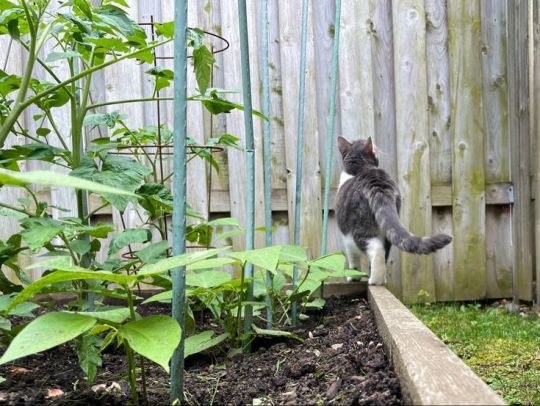

These moments after work, coupled with summer weekends spent hiking or kayaking, lead my story to right now. I’ve returned to the University of Guelph, taking on the role of ecology student for my third year. My “sense of place” within nature has truly blossomed here, where I spend my academic life studying our complex ecological world and my personal life finding natural influences in the music, clothing, activities, and friendships I immerse myself in. The relationship I share with nature is constantly evolving, and I’m looking forward to exploring the intricacies (and sharing them with you!) during our Nature Interpretation course this semester :)
5 notes
·
View notes
Text
5 Ways to Give Back to Society and Why It Is Important
The act of giving back to society stands as the most rewarding approach to making positive changes around the world. Social welfare gains strength through community support, which occurs through either monetary donations, personal service work, or advocacy for charitable organizations. Various non-governmental organizations (NGOs) devote time to uplifting underserved populations and giving needed services to marginalized persons, including the Standard Sunrise Foundation.
This article investigates five beneficial actions for community involvement and describes their relevance to social progress.

1. Volunteer Your Time and Skills
The most precious way to contribute stands as volunteer work. Various charitable organizations, together with senior citizen care centers and orphanage homes, require people to assist with their ongoing tasks.
I will devote myself to helping elderly residents at the old age home, or vridh ashram, which is in close proximity to where I live.
Find opportunities to assist volunteer-run events that focus on causes that inspire you.
The primary goal of my contribution will be to serve nearby orphanage volunteer programs that support children without parents.
Senior citizen centers should receive assistance for their volunteer activities to benefit elderly population members.
Such volunteer initiatives allow you to participate meaningfully in creating social impact.
2. Donate Clothes, Food, and Essentials
Individuals across various communities have difficulty meeting the requirements for daily survival. Any donation you make to others creates a substantial positive effect for their lives.
Your search should lead to an organization like an NGO that accepts clothing donations as well as charity orphanages that accept food and other essential items.
Your support at an old age home donation program helps improve facilities, which improves senior life quality.
Look for the closest residential facility for elderly citizens or a free elderly community more established in Delhi that accepts financial aid.
Your little act of giving has the power to enhance the daily existence of numerous people requiring help.
3. Support Non-Profit Organizations Financially
The continued valuable mission of NGOs depends heavily on their financial contributions. Contributing to a non-profit organization, either as one-time donations or monthly payments, enables long-term accomplishment.
Make financial support to a foundation NGO active in social development programs that work for social change.
Financial support for NGO mental health programs helps them offer counseling and emotional support to patients.
Join the community initiatives run by the Standard Sunrise Foundation since its mission is to serve the community through volunteer activities.
The process of NGO creation starts with NGO online registration or NGO registration choices for anyone who wants to establish their non-profit organization.
4. Raise Awareness About Social Causes
Social issue education drives increased participation from society members. You can:
Reveal details of top-class NGOs operating in Delhi and India, which will assist others to identify trustworthy organizations for support.
Teach people about NGO operations and management processes as well as nonprofit sector functions.
You should organize conversations about senior citizen mental health along with social welfare concerns because they improve care delivery to defenseless populations.
Volunteering as a change advocate will help expand social involvement among additional participants.
5. Participate in Community Development Programs
People who participate in community service activities establish long-lasting social advantages for their communities.
The community will benefit when citizens participate in neighborhood clean-up events and local tree-planting groups along with educational services.
Participate in sustainable development projects that seek social impact.
Participate in programs operated by the Care Foundation NGO alongside other support organizations dedicated to serving disadvantaged populations.
Participation in these programs develops an inclusive and stronger society.

Why Giving Back Is Important
Helping others beyond basic aid turns into a process which enriches your own existence. Fundamental reasons to give back to the community include the following points:
Making a difference in the world delivers enduring pleasure to those who do it.
Social activities based on kindness along with generosity create strong bonds among community members.
More societal involvement leads to positive transformation of future directions.
A substantial number of people depend completely on kind-hearted gestures as their means for survival together with general life support.
Your giving example will stimulate others to support similar causes, thereby spreading this effect throughout society.
Conclusion
The act of social service, which goes beyond being noble, represents a universal duty that everyone must fulfill. Every commitment to help others through volunteering or donations or popularization work and community involvement brings meaningful change. Standard Sunrise Foundation, along with other organizations, functions as a vital force that creates positive changes in our world. Your support of these initiatives creates a society that becomes both compassionate and caring.
Donating yourself to help others leads to improved lives and a broader understanding of social problems, plus enhanced knowledge of community service capabilities. Any helpful deed, no matter its size, creates progressive effects that build strong connections among people and their capacity to understand one another. Giving back creates enduring effects, which will develop a society in which each person can succeed.
The time to start stands before you—pick a mission that speaks to your heart so you can bring change to humanity today.
0 notes
Text
A Step-by-Step Guide to Creating High-Converting OTT Ads for Healthcare Services

How Can Healthcare Brands Create Impactful OTT Ads?
The success of an OTT advertising campaign depends on more than just targeting the right audience—it’s about creating compelling, engaging video ads that drive patient action.
With OTT advertising projected to generate over $210 billion globally by 2026, according to Statista, healthcare brands must adopt streaming ad strategies to stay ahead.
This step-by-step guide will walk you through how to design, launch, and optimize high-converting OTT healthcare ads.
Step 1: Define Your Target Healthcare Audience
Before creating an ad, determine who you’re targeting. Key healthcare audience segments include:
Local Patients – Ideal for urgent care centers, dental clinics, and specialty doctors.
Telehealth Users – Patients looking for virtual consultations, mental health services, and prescription refills.
Insurance Seekers – Individuals comparing healthcare plans or exploring Medicare options.
Caregivers & Families – People researching pediatricians, senior care, and family health services.
Use AI-powered audience segmentation from Brandify’s OTT targeting solutions to ensure your ads reach the right patients.
Step 2: Craft a Healthcare Ad Script That Engages Viewers
Keep your OTT healthcare ads concise, emotional, and actionable. The ideal script:
Identifies a Patient Need – “Struggling with back pain? Our specialists can help.”
Presents a Solution – “Book a virtual consultation in minutes.”
Adds a Call-to-Action (CTA) – “Find a doctor near you today.”
OTT ads should be 15-30 seconds long and include clear, visually engaging healthcare imagery.
Step 3: Choose the Right OTT Platforms for Your Healthcare Ads
Hulu & Peacock – Ideal for hospital ads and specialized medical services.
YouTube TV – Great for urgent care, telehealth, and family medicine promotions.
Amazon Fire TV – Perfect for reaching patients in their local area.
Step 4: Track & Optimize OTT Healthcare Ad Performance
Measuring success is crucial. Key OTT ad performance metrics include:
Impressions – How many people saw your ad.
View-Through Rate (VTR) – The percentage of viewers who watched the entire ad.
Website Traffic – How many users clicked through to your healthcare website.
Appointment Conversions – How many patients booked a visit after seeing your ad.
Use real-time analytics from Brandify to refine your healthcare ad campaign and increase conversions.
FAQs: How Can Healthcare Marketers Improve OTT Ads?
What type of healthcare ads work best on OTT? Short, visually engaging video ads with direct patient-focused messaging perform best.
How do I improve conversion rates for my OTT ads? Use geotargeting, retargeting, and optimized call-to-action (CTA) phrases to drive patient inquiries.
What’s the best way to measure OTT ad success in healthcare? Track ad completion rates, website visits, and patient appointment bookings for accurate ROI insights.
Final Thoughts: Build a Winning Healthcare OTT Strategy Today
OTT advertising is the most powerful tool for healthcare marketers looking to increase patient engagement, drive bookings, and improve brand visibility.
Ready to build a high-performing OTT ad campaign? Get a free targeting plan within the hour for your business here: https://brandify.io/targeting-plan/
Press Release: https://www.prlog.org/13053451
0 notes
Text
What can you do to prepare for ICE enforcement actions?
A lot of people who do not themselves have active immigration concerns want to know how they can support their friends, family, and community. A lot of people are sharing reports of alleged ICE actions: I'm inviting folks to consider other avenues, ones that are less likely to create misinformation and panic.
Credentialing: I'm an immigration lawyer, I've worked in immigration justice organizing for approximately a decade, I lead regular Know Your Rights trainings in my community.
Disclaimer: This is not legal advice. This is information about the US immigration system, and it may not be completely accurate to your specific location or situation. I am not soliciting clients on Tumblr. Do not message me confidential information about your, or anyone else's, immigration situation. If you need help with an immigration situation, the Immigration Advocates Network has a national database you can search by your location.
So, what can you do to help prepare for the event of an ICE enforcement action that impacts your community, friends, or family?
I. Assess risk
One of the most detrimental effects of the panic propaganda (which these constant threats of ICE raids absolutely are) is that it makes every single immigrant terrified, regardless of risk level. That saps the organizing power of immigrant communities and their supporters (like lawyers). You can help mitigate that effect by helping the people in your life and your community actually assess what their risk factors for targeting by ICE might be. This guide from 2017 for assessing risk from Immigrant Defense Project is a little dated at this point, but the basic information should be a good starting point.
Sometimes a risk assessment can help someone actually address some risk factors, like filing a renewal application, fixing their compliance with terms of their release before their parole is revoked, getting a lawyer to re-open their order of removal, or getting a criminal conviction mitigated/overturned. Even if it can't, it can help people have a more accurate picture of what their risk is, which people deserve to understand and to plan around.
II. Develop an emergency response plan
For people who are at risk of ICE arrest, detention, and potentially deportation, planning beforehand can make a huge difference. Immigrant Defense Project's guide to emergency preparedness is a great place to start. (Note: some of their linked resources are New York-specific. You may need to find ones for your state.)
If you're wondering how you can help the people you care about who are at risk, offer to play a role in their emergency plan. A great role for people who are fluent in English and familiar with US systems and structures is helping track someone through the detention system, and maintaining communications between them and their lawyer and outside community.
III. Prepare to document
Rapid response hotlines exist in all of the major cities on that list of potential targets. If they're not holding rapid response trainings right now, be patient: they probably will soon. Rapid response is often not about preventing an ICE enforcement action, it's about documenting it. It sucks that we often can't respond by stopping them from causing harm, but documentation provides leverage and opportunities for the people detained and for the community groups to use against ICE, which can win material victories, up to and including getting them to drop a deportation case and let someone go.
Do you film the police in your community, or otherwise document their actions? Documenting ICE works very similarly, they're just there less often and harder to identify. That means that you can train to document ICE by working with your local copwatch group. Learn how to generate good records, follow the local laws, store things securely, and connect with the people who can best use the data.
IV. Re-distribute resources
You know what really helps someone not get detained by ICE? Having the resources to avoid contact with them and with the criminal justice system. The most impactful detention prevention you can do with someone is to help them get their taillight fixed, secure a lease, pay for daycare for their kids, etc. Get people the money, access, and services they need to keep themselves safe! Do it now, and regularly: don't wait for someone to have an encounter that puts them on ICE's radar.
Can't afford to re-distribute resources directly? Most major cities in the US have "accompaniment" networks, where you can sign up to drive folks to get their licenses, and go with to the doctor, and help figure out how to get kids enrolled in school. This everyday, non-glamorous work is the most effective, meaningful, and useful thing you can do to help right now.
V. Collate and vet information
This isn't just about making sure what you share is verified (though it's significantly about that! I know the lure of chisme is so strong but please resist. Now more than ever, we have to take personal responsibility for not spreading misinformation!). It's also about something you, as a person reading this on the internet who therefore knows how to use at least one website, can do to be of service to the overwhelmed, scared, pissed off, and scrambling immigration justice groups right now. Find your local one, and ask: "Hey do you need more people finding news about immigration, checking it for reliability, and delivering it to you in one coordinated, easily-accessed place so you can decide how to disseminate it?" Not everyone needs that right now. But the ones who do will cry with gratitude. This is a particularly good role for folks who may have been feeling like their mobility or physical health meant they couldn't do anything to help against ICE--your skills are needed right now too, I promise.
Last note: I'm not going to tell you to calm down. It's reasonable and rational to be scared, and upset, and angry right now. But what I will say is: when the fear and outrage fade, the work won't end. I work with people who have been responding to ICE/INS actions for 40 years. A lot of this may feel brand new and terrifying to you, but to many of us, this is a familiar and known enemy that we spend our whole lives fighting.
It being familiar doesn't make it okay, or acceptable: it should all burn. But the organizing infrastructure to respond to this is here already. We're not helpless or surprised about what's happening, because we prepare for it every day. We're ready to fold you in with open arms whenever you want.
1 note
·
View note
Text
Unit 5 blog post
Hey fellow interpreters!
Have you ever wondered how we can really inspire people to care for the environment and take action? As academics, our participation in nature interpretation often centers on learning about the environment. Our lens is frequently narrowed to solely gaining knowledge through reading and researching, with less emphasis on practical application. This aligns with what Wals et al. (2014) describe as science education: a focus on what we know about the environment in terms of facts, data, and processes, such as understanding photosynthesis and cellular respiration. However, there's another crucial sector of education: environmental education. This focuses on why we should care and how we can make a difference. Think about understanding the impact of pollution on a local river and then organizing a community cleanup (Wals et al., 2014).When engaging with this week's content, I was excited to learn about the concept of convergence – blending scientific and environmental learning (Wals et al., 2014). We need both the scientific knowledge and the passion and motivation to drive change. Imagine if every science lesson included a real-world environmental problem and a clear call to action! And what about the people who teach and guide others? This is where naturalist programs come in!
So, how does convergence work in practice?
Citizen Science: This is where everyone can get involved! Citizen science empowers everyday people to collect data and monitor the environment. Think about participating in a butterfly count, identifying different species in your garden, and sharing your observations with a conservation organization to track population trends. You don't need a science degree to contribute. Naturalist programs often lead to volunteer opportunities in citizen science projects.
Technology: Apps and online tools make it easier than ever to share information, track environmental changes, and connect with other citizen scientists. Speaking of technology, our group's podcasts are a perfect example of how we can use it for convergence. We're targeting different age groups with children's and adult podcasts, discussing important environmental topics relevant to our university's Arboretum.
Whole-School Approaches: This involves creating eco-schools and incorporating sustainability into all aspects of the school curriculum, from school gardens and composting programs to energy-saving initiatives. The concept of eco-schools was new to me, but I was excited to discover the EcoSchools program here in Canada! EcoSchools is an environmental education and certification program for grades K-12 that helps schools develop environmental literacy and reduce their ecological impact. The program provides a framework for schools to assess their environmental performance, implement action plans, and track their progress. They also focus on student leadership, empowering kids to be environmental stewards within their schools and communities. Check out this video for a more in-depth look at how EcoSchools work:
youtube
Why is convergence so important?
By combining science and environmental education we can create informed and engaged citizens who are equipped to tackle complex environmental problems.
Participating in citizen science projects can help us develop a deeper connection with nature and a stronger sense of responsibility for protecting it. Naturalist programs can facilitate this connection through training and volunteer opportunities.
By focusing on local issues and places, we can make environmental problems feel more relevant and inspire action in our own communities.
What can you do?
Look for opportunities to participate in citizen science projects in your area. Your local conservation authority or naturalist group is a great place to start.
Encourage local schools to incorporate environmental education into their curriculum and consider becoming an EcoSchool!
Talk to your UofG friends and recommend ENVS3000 to them! (Shameless plug, I know!)
Let's bridge the gap between science and environmental education, support naturalist programs, and work together to build a more sustainable future for all!
References
Wals, A. E. J., Brody, M., Dillon, J., & Stevenson, R. B. (2014). Convergence Between Science and Environmental Education. Science, 344(6184), 583-584. https://www.science.org/doi/10.1126/science.1250515
0 notes
Text
The Ultimate Guide to Wollongong House Demolition
Whether you’re looking to upgrade your property or clear the way for new construction, Wollongong House Demolition is a crucial first step in any building project. But demolition isn’t just about knocking down walls; it’s a detailed process that involves careful planning, safety protocols, and expert execution. This guide will walk you through the ins and outs of house demolition in Wollongong, giving you the knowledge you need to make the best decisions for your project.
Before diving into a demolition project, it’s essential to understand the steps involved, the legal requirements, and the key factors to consider. With the right approach, your Wollongong House Demolition can be efficient, safe, and cost-effective.
1. The First Step: Planning Your Wollongong House Demolition
Planning is the cornerstone of any successful Wollongong House Demolition. A well-thought-out plan ensures that the process will run smoothly, stay within budget, and meet all regulatory standards. Before you even think about hiring a demolition company, take the time to assess your property and decide what you want to achieve with the demolition. Are you clearing space for a new build, or are you tearing down to refurbish the site?
In this stage, it’s also essential to consult with a structural engineer or demolition expert to evaluate the safety of the structure. They’ll help you identify which parts of the house can be demolished safely and what needs to be preserved. Obtaining the necessary permits is a crucial part of this planning stage as well—failure to comply with local regulations can result in delays or legal consequences.
2. Understanding the Demolition Process: How It Works
Once the planning stage is complete, the Wollongong House Demolition process can begin. The demolition itself typically involves several stages: preparation, deconstruction, and clean-up. First, the site will be secured, and any utilities such as water, gas, and electricity will be disconnected. This step is vital to ensure the safety of everyone involved in the demolition.
After disconnecting utilities, the demolition crew will proceed with the actual teardown. Depending on the size and structure of the house, this could be done by mechanical demolition (using heavy machinery like excavators) or manual demolition (removing parts of the house by hand). Some houses require a more careful, selective demolition approach, especially if they are being renovated rather than completely torn down. After the building is demolished, the crew will begin cleaning up the debris and preparing the site for the next phase of construction.
3. Safety First: How to Ensure a Safe Demolition in Wollongong
Safety is a top priority when it comes to Wollongong House Demolition. Not only is it important to protect the demolition workers, but also anyone who might be nearby during the process. The demolition site should be carefully cordoned off, and all workers should wear appropriate personal protective equipment (PPE) such as helmets, gloves, and steel-toed boots. In addition, a certified demolition company will ensure that hazardous materials, such as asbestos, are handled and disposed of safely.
To ensure safety, it’s also necessary to have a qualified demolition team on-site, equipped with the right tools and machinery. A reputable demolition company will follow all safety standards, keeping both workers and the surrounding community out of harm’s way. Make sure to ask about the company’s safety record and the protocols they follow before hiring them for your Wollongong House Demolition.
4. Environmental Impact: Responsible Demolition in Wollongong
Environmental responsibility is an increasingly important aspect of any demolition project. A Wollongong House Demolition should focus not only on tearing down structures but also on reducing the environmental impact of the process. This can be achieved by recycling and salvaging as much of the building material as possible. Metal, wood, and concrete can often be repurposed, reducing the amount of waste that ends up in landfills.
Additionally, some homes may contain hazardous materials, such as lead paint or asbestos. Proper disposal of these materials is essential to prevent contamination and protect the environment. A professional demolition company will have the experience and expertise to handle these materials responsibly, ensuring a cleaner, greener demolition process.
5. Choosing the Right Demolition Company for Your Wollongong Project
One of the most important decisions you’ll make during your Wollongong House Demolition is choosing the right demolition company. You want to hire a team that has experience, a strong safety record, and a commitment to environmental responsibility. Take the time to research local demolition companies, read reviews, and ask for references before making your decision.
A good demolition company will offer a detailed quote, outline the entire process, and explain any potential challenges that may arise during the demolition. They’ll also work closely with you to ensure that the project is completed on time and within budget. Don’t be afraid to ask questions about their experience with similar projects, the equipment they use, and how they handle waste disposal.
Conclusion: Ready to Start Your Wollongong House Demolition?
When it comes to Wollongong House Demolition, taking the time to plan, prioritize safety, and hire a reputable team can make all the difference. Whether you’re renovating, rebuilding, or clearing the site for new construction, demolition is a necessary part of the process. By following the steps outlined in this guide, you’ll be well on your way to a successful, stress-free demolition project.
Take the first step today by reaching out to a professional demolition company to discuss your needs. With careful planning and the right team by your side, your Wollongong property will be ready for its next chapter in no time!
0 notes